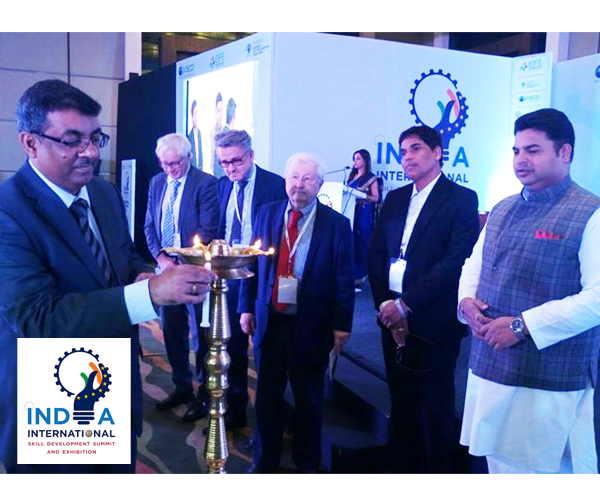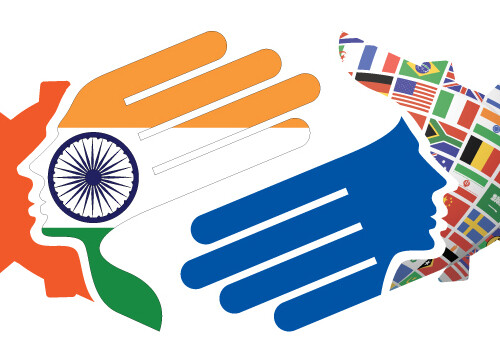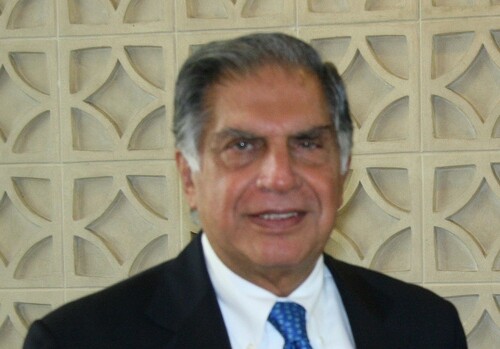EU big guns join Skill India
Biz@India

Lamp Lighting – IISDSE 2016
The first day of the India International Skill Development Summit & Exhibition (IISDSE 2016), held on November 21 at The Grand Hotel, New Delhi, saw a participation of over 300 delegates who came together to deliver enlightening sessions aimed at discussing the challenges faced in skill development in India and the potential areas of collaborations.
The first plenary session, titled ‘Looking Back at a Decade of Skilling’, witnessed speakers discussing the situation of skill development in India in the past decade and went on to assess the path that lies ahead. Manish Kumar, the CEO and MD of National Skill Development Corporation stated, “One big problem in bringing investments in the private sector has been that one often does not see returns very visibly,” and shared their aim of creating a policy environment to establish a sustainable investment-return rate of 10 pc.
Count Christopher de Breza, founding chairman of Europe India Foundation for Excellence (EIFE), added, “The development patterns of countries are different, which means there is a need to invite reach from outside who could look at the problems specific to India.” The session highlighted the need to be adequately prepared for the huge demographic dividend that India would stand to achieve over the next decade.
Officials and ministers from the Indian states of Uttar Pradesh, Odisha and Maharashtra took the stage to discuss the situation in their respective states. “The Uttar Pradesh Skill Development Mission seeks to ensure empowerment, entrepreneurial spirit and an environment for employability for the youth, which we want to ensure through steps such as adopting an American community college network or the German dual track mode education,” stated Prof Abhishek Mishra from the Government of Uttar Pradesh.
Arun Kumar Sahoo, a minister from the Government of Odisha, spoke on the need for developing ITIs (Industrial Training Institutes) and short-term training programmes in the state for further skilling of the rural workforce, 41 pc of which is aged less than 35 years.
R Vimala, CEO, MSRLM, Government of Maharashtra, also emphasised on the need for developing skills in the rural area. “Rural youth has to be the focus. We are looking to make a democratic, self-managed community by strengthening small enterprises. The future lies in our villages and not only in urbanisation and modernization,” she stated.
The road to introducing an international dimension to skilling in India was also discussed. Dr Ursula Renold, from ETH, Zurich, shared, “We are developing instruments to measure and indicate the scope of workplace training. In India, the big challenge remains with the large informal sector and we would look forward to engaging in knowledge transfer with the country to ameliorate skill development here.”
Jitendu Roy, speaking on behalf of bfz Hof, Germany, stated that the institute was working on modifying its curriculum to work for the local system, and was already engaged in such programmes.
Sameer Joshi, the CEO and Director, Kohinoor Technical Institute (KTI), Mumbai, remarked that KTI had been working in the sector for over five decades and was working on future partnerships and collaborations with European counterparts to go a step beyond its current operations.
German institutions such as GSI-SLV, Rexroth Bosch Group and TÜV Rheinland (India) shared their experiences, expertise and willingness to extend potential tie-ups with India.
Ajay Chhangani, CEO, Rise India, moderated a session and discussed corporate initiatives in skilling and employability. Sanjay Shivnani, Head of Vocational Education of Aditya Birla Foundation said, “Capacity building for industrial training institutes remains a challenge but we hope to sustain and expand our multi skill development foundations which empower and equip the youth.”
RV Bala Subramaniam Iyer, the Vice President of Reliance Jio Infocom Ltd said, “We feel productivity is the biggest advantage that comes with skill development. We are partnering with colleges across the country. A hyper-connected digital campus which we envision will change the way forward.”
The last session of Day 1 looked at skilling in a green economy post the Paris Climate Agreement global order. Dr Arunabha Ghosh, CEO, Council on Energy, Environment and Water (CEEW), talked about new jobs that are coming up in the renewable sectors, which were earlier not considered as job-creating industries.
Rajendra Shende, who was moderating the session, addressed a question on importance of looking at green jobs by also challenging current trends. “Skill building can also sometimes be mission for un-learning of harmful knowledge,” he remarked.
Ranvir Nayar of EIFE successfully concluded the first day’s proceedings by saying, “OECD is assessing skill gaps in terms of manpower. It is currently being worked upon in collaboration with EIFE, and we hope to start with the pilot study of a single state in India, at the very least.”












